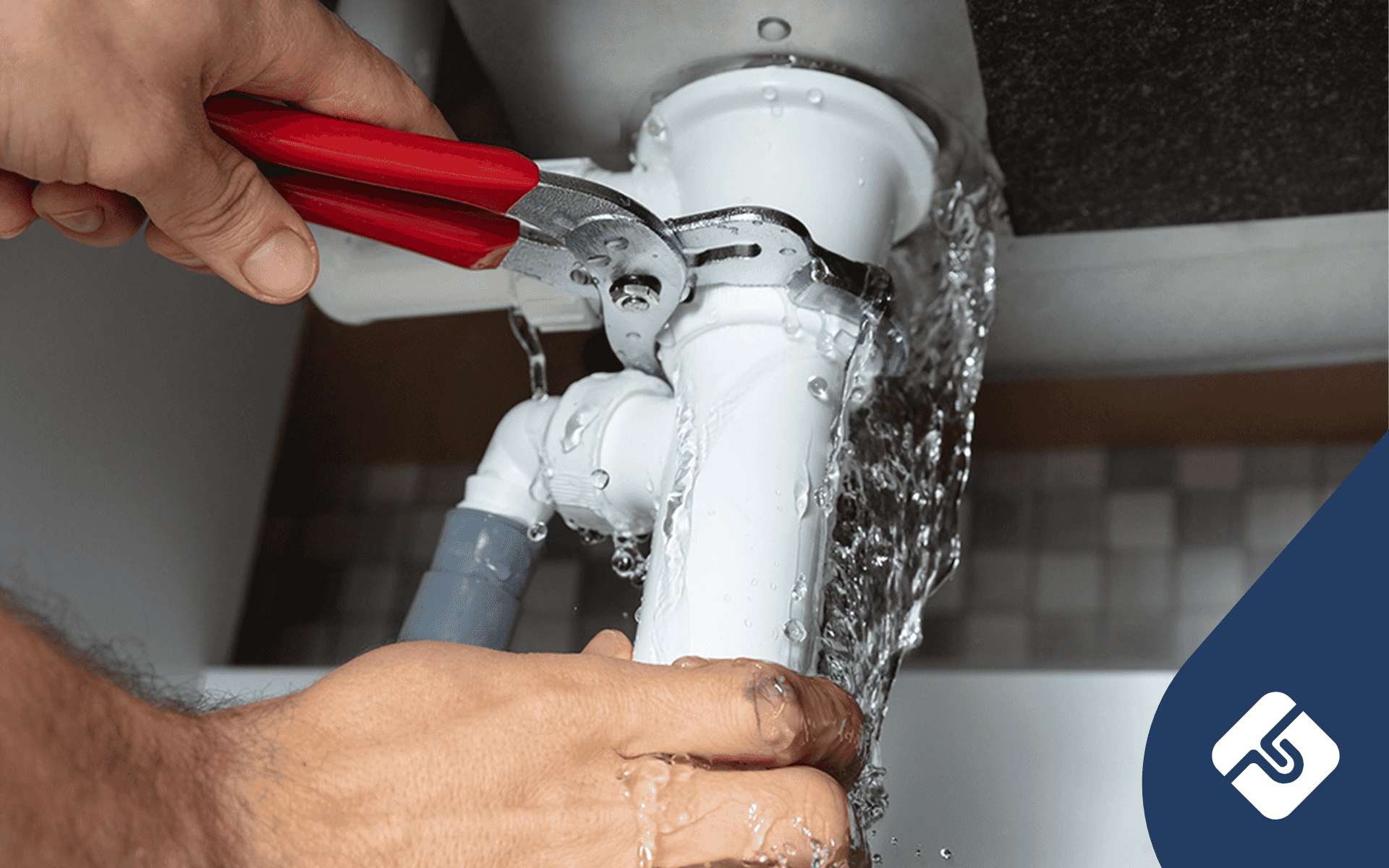Shantelle is a Legal Tech Intern at Lawpath, working as part of the Content Team. She is currently in her final year of a Bachelor of Laws and a Bachelor of Business at the University of Technology Sydney. She is interested in emerging technologies and privacy.
💡 Key insights
- To start a plumbing business in Australia you must hold a recognised plumbing qualification and obtain the correct state-based plumbing licence or registration.
- You need an Australian Business Number (ABN) and should choose the right business structure such as a sole trader, partnership, or company, which affects liability, tax, and growth potential.
- Essential protections include public liability insurance, tool and equipment insurance, income-protection insurance, and accurate bookkeeping from the start.
- Startup costs typically range from AUD 5,000 to AUD 15,000 for tools, licensing, insurance, and necessary equipment, with higher costs if you invest in a vehicle, marketing, or scale quickly.
Many aspiring tradies are eager to take control of their careers but get stuck on the paperwork and legal hurdles that come with launching a business. Indeed, navigating the licensing, business structures, tax set-up, accounting, and so on can be a challenge.
We’ve got your back! If you are a plumber looking to start your own plumbing business in Australia, then this guide is for you. By the end, you’ll have a clear roadmap for setting up your plumbing business legally, efficiently, and with confidence.
Table of Contents
What do I need to start a plumbing business in Australia?
There are several legal requirements to start a plumbing business in Australia. Each component is crucial to ensure that your business is legally compliant, professionally recognised, and set up for success.
Here is your plumbing business checklist.

Get on demand legal advice for one low monthly fee.
Sign up to our Legal Advice Plan and access professional legal advice whenever you need it.
Plumbing qualification
To work as a plumber in Australia, you must hold a Certificate III in Plumbing (or its equivalent). Typically, you can complete this qualification through an apprenticeship, which includes both theoretical and practical components. The Certificate III is nationally recognised and covers core and specialist skills across areas like water, sanitary, drainage, gas, roofing, and mechanical services.
- The qualification consists of a combination of core and elective units, with streams tailored to your chosen field (e.g., gasfitting, drainage, roofing).
- Completing this course is mandatory before you can apply for a plumbing license in any state or territory.
- Most registered training organisations across Australia offer this qualification, and prior experience or study may be recognised for credit or faster completion.
Trade licence
After obtaining your qualification, you must secure a plumbing licence or registration from your state or territory’s regulator. Each region has its own licensing authority and application process.
- New South Wales: NSW Fair Trading
- Victoria: Victorian Building Authority (VBA)
- Queensland: Queensland Building and Construction Commission (QBCC)
- South Australia: Consumer and Business Services (CBS)
- Western Australia: Plumbers Licensing Board
- Tasmania: CBOS
- ACT: ACT Planning and Land Authority
- Northern Territory: Plumbers and Drainers Licensing Board
Licensing ensures you are legally allowed to work unsupervised, sign off on compliance certificates, and take on your own clients. Requirements to obtain a license may include proof of qualifications, work experience, insurance, and ongoing professional development

Get a fixed-fee quote from Australia's largest lawyer marketplace.
ABN registration
Every Australian business needs an Australian Business Number (ABN). This unique identifier is required for invoicing, tax, and dealing with suppliers or government agencies.
- You can register for an ABN for plumbers online or via platforms like Lawpath that allow you to register your business name and ABN together, streamlining the process and ensuring compliance.
- Having an ABN is also essential for setting up business bank accounts and registering for Goods and Services Tax (GST) if your turnover exceeds the threshold.
Choosing a legal structure
Deciding on your business structure is a key step that affects your tax, liability, and reporting obligations. Common structures include:
- Sole Trader: Simple and affordable, with minimal paperwork, but you are personally liable for business debts.
- Partnership: Suitable for businesses with two or more owners sharing responsibility.
- Registered Company: Offers liability protection and scalability but comes with more complex compliance and higher setup costs.
Your choice will impact how you pay taxes, your personal liability, and your ability to scale or sell the business in the future. Check out our Business Structure Quiz to learn which option is right for you.

Get on demand legal advice for one low monthly fee.
Sign up to our Legal Advice Plan and access professional legal advice whenever you need it.
Basic insurance and recordkeeping
In addition to qualifications, licensing, and registrations, you’ll need insurance. At a minimum, you must have public liability insurance to protect against claims of property damage or injury caused by your work. Depending on your circumstances, you may also need:
- Tools and equipment insurance
- Income protection insurance
Additionally, it’s crucial to maintain good recordkeeping from day one. Keep accurate records of jobs, expenses, invoices, and compliance documents to meet legal requirements and simplify tax time.
Digital tools and software can make this process easier, helping you stay organised and audit-ready.
Should you register as a sole trader or company?
Choosing the right legal structure is a critical decision for your plumbing business. Here’s a quick breakdown of things to consider:
| Structure | Simplicity & Cost | Liability Protection | Scalability & Tax |
| Sole Trader | Easiest & cheapest to set up; minimal paperwork | You’re personally liable for debts and claims | All profits taxed as personal income; simple reporting |
| Company | More complex; higher setup/admin costs | Limited liability—your personal assets are protected | Company tax rate; easier to scale, add partners, or sell business |
Sole trader
- Simple to set up — register your ABN and business name (Lawpath can help)
- You’re responsible for all debts and obligations
- Profits are taxed at your individual tax rate
Company
- Separate legal entity — better liability protection.
- More paperwork and compliance (ASIC reporting, company tax).
- Can be more tax-effective as you grow.
How much does it cost to start a plumbing business?
The cost to start a plumbing business in Australia can vary significantly, ranging anywhere between AUD 5,000 and AUD 15,000. The cost is influenced by factors such as the scale of your operations, whether you’re working solo or as a company, and the quality and condition of the tools and equipment you choose.
Some plumbers begin with a modest investment, especially if you already own basic tools or opt for second hand equipment, while others may invest more heavily in new gear, a reliable vehicle, and professional branding.
Legal Pricing Calculator-

Determine the right prices for legal services—fair and square
Start for free and compare prices of legal services quickly.
Plus, your start-up costs will depend on your approach to marketing, insurance, and the systems you put in place to manage your business.
In any case, it’s important to be prepared for a range of startup expenses. Key costs typically include:
- Tools and equipment
- Vehicle (purchase or lease)
- Insurance (public liability, tools, income protection)
- Licence and registration fees
- Marketing and branding (website, business cards)
- Software for quoting, invoicing, and bookkeeping
While the exact amount you’ll need depends on your choices and business goals, many plumbers find that investing in quality systems, insurance, and compliance services from the outset helps reduce risks and avoid costly penalties later on.
Can you claim any plumbing business costs on tax?
Remember that many of your business expenses are tax-deductible, which can make a big difference at tax time.
Common plumber tax deductions include:
- Tools and equipment (including repairs and maintenance)
- Insurance premiums
- Work-related travel (vehicle expenses, fuel, parking)
- Uniforms and protective clothing
- Mobile phone and internet (if used for work)
- Software subscriptions (job management, bookkeeping)
- Home office expenses (only applicable for businesses that operate from home)
To claim deductions, make sure to keep detailed records and receipts from the start. While certain small expenses can be claimed without a receipt, good record keeping is essential for maximising your deductions and staying compliant with the Australia Taxation Office (ATO).
What licences and registrations do plumbers need in Australia?
It’s important to understand that being qualified vs licensed is not the same thing under Australian regulations. Both are mandatory steps, but each serves a distinct purpose.
Qualified plumber
A qualified plumber in Australia has completed the necessary training and apprenticeship, typically culminating in a Certificate III in Plumbing (or an equivalent nationally recognised qualification).
This qualification ensures you possess the foundational skills and knowledge required to perform plumbing work safely and competently. The training covers a broad range of plumbing tasks, including water, drainage, gas, and roofing services.
Completing this qualification is the first step and is a prerequisite before you can apply for any form of plumbing license in Australia, specific to your state or territory.
Some experienced workers may also have their skills recognised through Recognition of Prior Learning (RPL), which can fast-track the qualification process if you already have significant industry experience.
Licensed plumber
Once you are qualified, you must obtain a plumbing licence or registration from your state or territory’s regulatory authority. Each state and territory has its own licensing body and specific requirements, which may include proof of qualifications, work experience, and sometimes additional assessments or specific training.
Licence renewal
Most licences must be renewed every 1–5 years, depending on your state. You’ll need to keep up with continuing professional development (CPD), maintain insurance, and keep accurate records for compliance audits.
Do you need insurance to run a plumbing business?
Insurance is essential for any business, both for compliance and peace of mind. In the case of a plumbing business, public liability insurance is mandatory in most states, while other types are desirable.
Public liability insurance
Public liability insurance for plumbers is essential. It covers you if your work causes property damage or injury to a third party, such as a client or a member of the public.
For example, if a burst pipe floods a customer’s home or someone slips on a wet surface you’ve left behind, this insurance can cover legal fees and compensation costs.
In many states, public liability insurance is a mandatory requirement for obtaining or renewing your plumbing licence, and most building contractors or clients will insist on seeing proof of cover before hiring you.
Tools insurance
Your tools are among your most valuable business assets. Tools insurance (sometimes included in business insurance packages) protects you against financial loss from theft, accidental damage, or loss of your tools.
Without this cover, replacing essential equipment out of pocket can be costly and disruptive, potentially halting your business operations until you can afford replacements.
Income protection insurance
Income protection insurance provides a safety net if you’re unable to work due to injury or illness. Plumbing is physically demanding, and even a minor accident can put you out of action for weeks or months.
This type of insurance ensures you still receive a portion of your income while you recover, helping you manage living expenses and business costs during downtime.
Why insurance matters
- Insurance is often required for licensing and when taking on larger contract jobs.
- Many clients and building contractors will only hire plumbers who can provide proof of insurance.
- Even sole operators can find affordable policies tailored to tradies — this doesn’t need to break the bank.
What tools and systems help you run a plumbing business smoothly?
Running a successful plumbing business is about more than pipes and fittings — it’s about staying organised and efficient. Consider an efficient setup from the get-go with these essential business tools for tradies.
- Job management and scheduling software: These tools help you quote, schedule, invoice, and track jobs from your phone or tablet.
- Examples: ServiceM8, Ascora, Fergus, AroFlo, Connecteam.
- Bookkeeping and accounting: Automate your invoicing, GST, and BAS reporting.
- Examples: Xero, QuickBooks.
- Online legal tools: Platforms like Lawpath offer contract templates, employment agreements, and compliance checklists, making it easy to stay on top of your legal obligations.
Want more?
Sign up for our newsletter and be the first to find hand-picked articles on topics that we believe are crucial to successfully scale your unique small business.
By clicking on 'Sign up to our newsletter' you are agreeing to the Lawpath Terms & Conditions
FAQ
Are plumbing tools and expenses tax deductible?
Yes! Most work-related tools, equipment, insurance, and even some travel expenses are tax-deductible for plumbers. Just keep your receipts and records handy for tax time.
What do I need to start a plumbing business in Australia?
You’ll need a plumbing qualification (Cert III), the right trade licence for your state, an ABN, a legal business structure, and basic insurance.
Need help setting up legally? Here’s where to start.
Setting up legally doesn’t need to be overwhelming. Lawpath offers tools for business structure, licence guidance, document templates, and more — all online and designed for Australian tradies. From registering your business and ABN to accessing legal documents and compliance checklists, Lawpath streamlines the setup process so you can focus on what you do best.
Download our free Financing Your Business ebook to explore startup-friendly funding options like grants, loans, and line of credit facilities.
Don't know where to start?
Contact us on 1800 529 728 to learn more about customising legal documents, obtaining a fixed-fee quote from our network of 600+ expert lawyers or to get answers to your legal questions.






